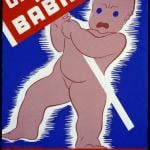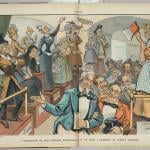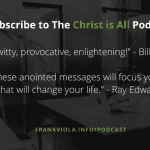In a review of several books on Henry Miller for the TLS , Karl Orend highlights Miller’s religiosity and his sense of religious mission. He “was Buddhist for most of his life,” and considered his task to be a continuation of Whitman’s plant “to write new Bibles for our times.” Orend writes, “Miller likened his own novel [ Tropic of Cancer ] to the erotically charged cave temples of India.”
Even his apparently formless literary architecture was religiously motivated: “Miller detested linear narrative, and sought, like Proust and Joyce, to replace linear with spiral. This conceit links mankind, separated from the rhythms of nature and from the divine, to a world view that was eclipsed by the advent of Puritanism and industrialization, with their emphasis on time and sin. Christian morality, in Miller’s world view, is immoral.”











